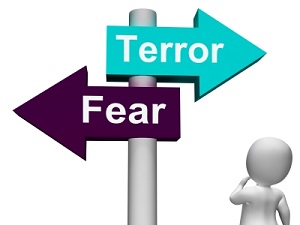


As much as many people may dislike bankers, financial systems have enabled civilizations to develop and prosper. The availability and flow of capital has facilitated the creation of modern societies. There is another commodity that also central to civilization and individual prosperity, it is the “supply” or “amount” of Trust in society.
Trust is defined as a “firm belief in the reliability, truth, ability, or strength of someone or something.” Trust enables the creation of confidence, assurance, faith, conviction, reliance, feelings of control, and more. Therefore, societies literally “bank on Trust” to function. To put it another way, both society and the individual require a certain amount of Trust to function. When there is insufficient Trust available, both society and the individual suffer. Society suffers a breakdown of smooth functioning and overall human relationships. Individuals suffer from less confidence, less assurance, less reliance, lower feelings of control, etc., all of which leads to reduced well-being.
Fear destroys Trust. Trust destroys Fear. Fear and Trust are mutually exclusive. The creation of Fear causes a withdrawal of Trust. The creation of Trust causes a withdrawal of Fear. In terms of the banking analogy, when you add Fear to society or an individual, you are making a Fear Deposit and a Trust Withdrawal. When to you Trust to society or an individual, you are making a Trust Deposit and a Fear Withdrawal.
Fear is defined as “an unpleasant emotion caused by the belief that someone or something is dangerous, likely to cause pain, or a threat.” Fear enables the creation of alarm, panic, dread, agitation, dismay, distress, distrust, and promotes the side-effects of hate, blame, prejudice, corruption, mistreatment, othering, feelings of victimization, loss of control, and more.
As with most things in life, there needs to be a balance between Trust and Fear. The balance depends upon the situation. For example, when you are in a secure environment, you function most effectively with more Trust and less Fear. But when in an environment where chaos and mayhem (the Jungle) is the rule, you need more Fear and less Trust. Alternatively speaking, increasing Fear in a civilized society decreases the Public Trust and moves the society towards chaos and mayhem. Reducing Fear in a place of chaos and mayhem moves people towards more Trust and increased civility.
The Fear Industrial Complex profits off your Fear. The Fear Profiteers that make up the Fear Industry sell products, agendas, or services that are Fear dependent. When Fear increases, so do their sales. Personal safety products, weapons, and services are obvious products of the Fear Industry. But less obvious are certain Advocates of social causes that also profiteer in Fear. These Advocates generate support for their cause (their solution) by promoting widespread Fear of the social problem they claim to want to solve.
Without judging the sincerity of the motive, increasing Fear of a social problem decreases the Public Trust. If the Advocates create more Fear than Trust provided by their Solution, the net effect is societal and individual harm. If the Advocates tell you how much danger you are in, but don’t offer you a viable actionable solution, they are increasing your Fear because you feel less in control. The Fear is real even if the danger is only perceived. The Fear is real even if the chance or actual risk of the danger is slight.
One of the primary methods to identify an Advocate Fear Profiteer is to see evaluate how they frame “the Problem”. Do they accurately describe who is in danger and who is not? Do they accurately define the limits of the Problem? Or do they make sweeping warning statements that categorize huge groups of people as in danger? Fear Profiteers capitalize on actual social problems by magnifying them to include as many people as possible. If the people ‘in danger” are at the mercy of society to solve the Problem, the harmful result is lowered feeling of control and increased anxiety with no direct method to counter it.
An effective test of a Fear Profiteer is how it handles research and studies of the Problem. Fear Profiteers extract the data that highlights the Problem in the worst possible light. Fear Profiteers reject studies and minimize data that show that the Problem as limited. Ideological Advocates reject any solution that is not their chosen solution. The Problem is a vehicle to promote their Solution and their point of view. Despite claiming to want to lessen the Problem, Ideological Advocates believe their cause benefits most when the Problem is perceived as widespread as possible. The Ideological Fear Profiteer is a destroyer of the Public Trust and many individual’s feeling of well-being.
As a result of the marketing efforts of the Fear Profiteers, many people in society are living anxious lives with a higher level of Fear than is warranted by the actual danger. Regardless of the “good intention” to being awareness to their Problem of choice, Fear Profiteers are making Fear Deposits and Withdrawing Trust from Society. The Fear Profiteers gain is your and society’s loss.
Related CRGI Links
Fear Management vs. Danger Management – Marc MacYoung
Campfire Chat #2: Suppression of Panic and Controlling Fear – Rory Miller and Toby Cowern
Hyper-Learning Module #3: Fear and Threat Assessments – Erik Kondo
To Fear or Not to Fear – Erik Kondo
Fighting the Merchants of Fear – Erik Kondo
Turning Fear into Safety – Kathy Jackson
Related Outside Links
The Culture of Fear: Why Americans Are Afraid of the Wrong Things
Very tightly argued Erik. I remember reading Francis Fukuyama’s ‘Trust’ some years back. It is a lengthy and in depth discussion put you put the subject in a nutshell.
Very tightly argued Erik. I remember reading Francis Fukuyama’s ‘Trust’ some years back. It is a lengthy and in depth discussion but you put the subject in a nutshell. No mean feat that.